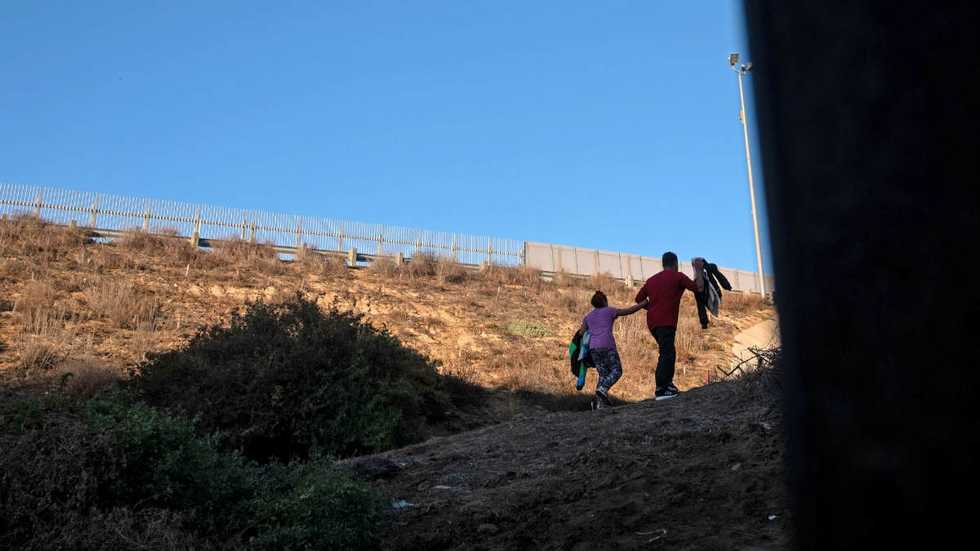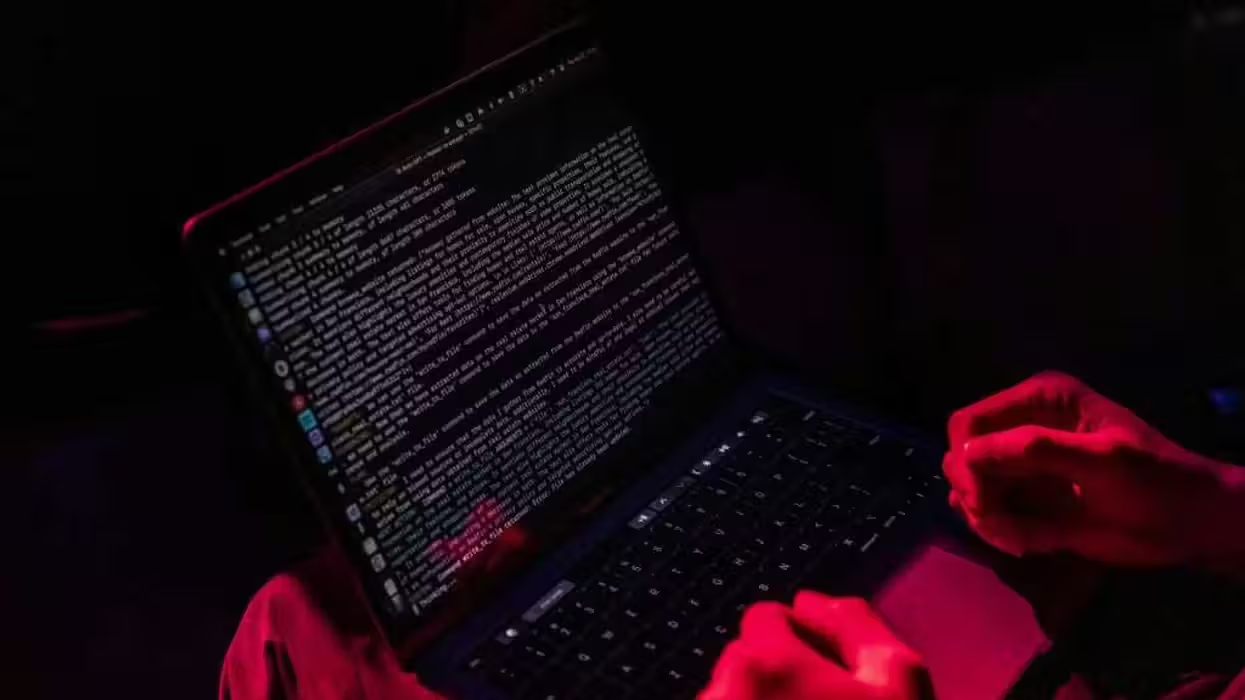
© 2026 Blaze Media LLC. All rights reserved.
“Political pundits, talking heads, scholars and politicians have convinced the American public that only legislation can solve the problem. They say there are too many immigration and asylum loopholes preventing the government from deporting illegal border crossers in a timely manner. They are all wrong.”
Those were not the words of yours truly, but of Brandon Judd, the head of the Border Patrol union, in a Washington Times op-ed. He suggests we actually just enforce the asylum laws in statute and have border agents at the front lines, not bureaucrats in other DHS agencies, take the lead on enforcement.
The talking point about the broken laws, in the media and even from the administration, have been so incessant and emphatic that most people probably think the laws require open borders unless Congress votes to change them. In fact, our laws are very clear that people who come to our border without proper documentation are all illegal aliens and must be deported. In 1996, Congress further updated those laws to preclude endless lawsuits. In recent years, though, past administrations have taken discretionary exceptions to this rule in the Immigration and Nationality Act – commonsense optional forms of relief for individuals in exigent circumstances – and have made them the rule. Now, forum-shopped lower courts are taking these discretionary forms of relief and making them mandatory while ripping up the base statutes that say the exact opposite. In turn, DHS leadership, thus far, has been so overly deferential to this insidious judicial civil disobedience against our laws that they are not even enforcing the laws and processes clearly on the books to deal with all illegal aliens.
Why isn’t DHS simply interviewing them the minute they come here, rejecting illegitimate claims, and immediately starting the deportation clock, pending the one appeal they have? Just a few weeks of this will deter the people down the pipeline in Central America, as it did when we implemented a similar policy pursuant to law to deal with the 1989 Nicaraguan wave.
Brandon Judd believes that a lot of the problem is rooted in the bureaucratic divides between numerous agencies. Under our original immigration laws, the entirety of immigration policy was controlled by one commissioner of the Immigration and Naturalization Services, whose agency handled Border Patrol, detentions, deportations, and adjudications. First, after the DOJ restructuring in 1983, and then after the creation of the Department of Homeland Security in 2002, these jobs have been separated between at least four agencies within two different departments. Border Patrol initially apprehends illegal aliens, ICE detains and deports them, and USCIS processes asylum claims. They are all under DHS, but then the rest of the adjudication process is run by the Executive Office of Immigration Review (EOIR), which is still under the Department of Justice.
According to Judd, the problem begins right at the entry, when Border Patrol turns over the aliens to other agencies and the deportation clock never begins. The process at USCIS work’s at a snail’s pace. Judd’s idea is to have senior Border Patrol agents conduct the credible fear interviews right on the spot when the migrants enter. What difference would that make? According to Judd in the Washington Times, it would make all the difference:
If the “credible fear” process begins upon arrest by Border Patrol agents, instead of at a later interview before an asylum officer, the process will be much more efficient. If an asylum-trained senior patrol agent determines that the alien has not established a credible fear, an order of expedited removal can be issued, and the illegal border-crosser can be removed immediately. The illegal border-crosser does have appeal rights, but by regulation an immigration judge must hear the case within 10 days of the person asking for reconsideration. Again, because this is not a criminal proceeding, the burden of proof remains on the illegal border-crosser, not the U.S. government.If no credible fear is established, the process would take no more than 10 days instead of the 2 to 5 years it now takes to deport an illegal border-crosser who claims asylum. This simple adjustment would end catch-and-release.
This is not a new suggestion; this is current law that is not being followed. The only nuance he is suggesting in order to ensure that the law is being followed would be to allow Border Patrol to act as asylum officers, which they can under law if they are trained because they are “immigration officers.” Otherwise, the law requires the DHS to deny asylum to those without an individualized fear of persecution, the law requires they be deported, and the law requires they be detained pending any appeals. The law was written to protect us against all of what is going on today.
Moreover, a number of asylum adjudicators at USCIS are part of a “deep state” for open borders that does not share the institutional concerns for American sovereignty of those who work for Border Patrol. As Jessica Vaughan of the Center for Immigration Studies explains, “Border Patrol agents are likely to have a very different view of the nature of this mass migration event; being on the front lines, seeing the smuggling, speaking to the migrants, knowing the intelligence on the criminal organizations behind this all gives them a more realistic view of what is happening and why. “
USCIS officials, on the other hand, “fall for the rote fear claims of the migrants,” according to Vaughan. She believes that if Border Patrol agents conduct the initial screening, they could vet the migrants “before American activists can coach them on what to say to gain release.”
“This is especially important in light of reports from whistleblowers at USCIS who say that asylum officers have been instructed by resistant career supervisors to ignore efforts by the Trump administration to return to deciding these cases according to the letter and intent of the law. The USCIS resisters who reportedly have made it known to rank and file asylum offices that all claims must be approved will have no way to impose this seditious mandate on Border Patrol agents, who have a separate chain of command.”
A lot of this is a lack of political will to enforce the laws, not a lack of laws to create the political will. As Judd explained to me in a phone interview, “Unless we use all of the tools under existing authority, we will never solve the illegal immigration crisis. Congress has proven ineffective, and if we place our hopes in them, the border will never be secured.”
#mc_embed_signup{background:#fff; clear:left; font:14px}
/* Add your own MailChimp form style overrides in your site stylesheet or in this style block.
We recommend moving this block and the preceding CSS link to the HEAD of your HTML file. */
Want to leave a tip?
We answer to you. Help keep our content free of advertisers and big tech censorship by leaving a tip today.
Want to join the conversation?
Already a subscriber?
Blaze Podcast Host
Daniel Horowitz is the host of “Conservative Review with Daniel Horowitz” and a senior editor for Blaze News.
RMConservative
Daniel Horowitz
Blaze Podcast Host
Daniel Horowitz is the host of “Conservative Review with Daniel Horowitz” and a senior editor for Blaze News.
@RMConservative →more stories
Sign up for the Blaze newsletter
By signing up, you agree to our Privacy Policy and Terms of Use, and agree to receive content that may sometimes include advertisements. You may opt out at any time.
Related Content
© 2026 Blaze Media LLC. All rights reserved.
Get the stories that matter most delivered directly to your inbox.
By signing up, you agree to our Privacy Policy and Terms of Use, and agree to receive content that may sometimes include advertisements. You may opt out at any time.






